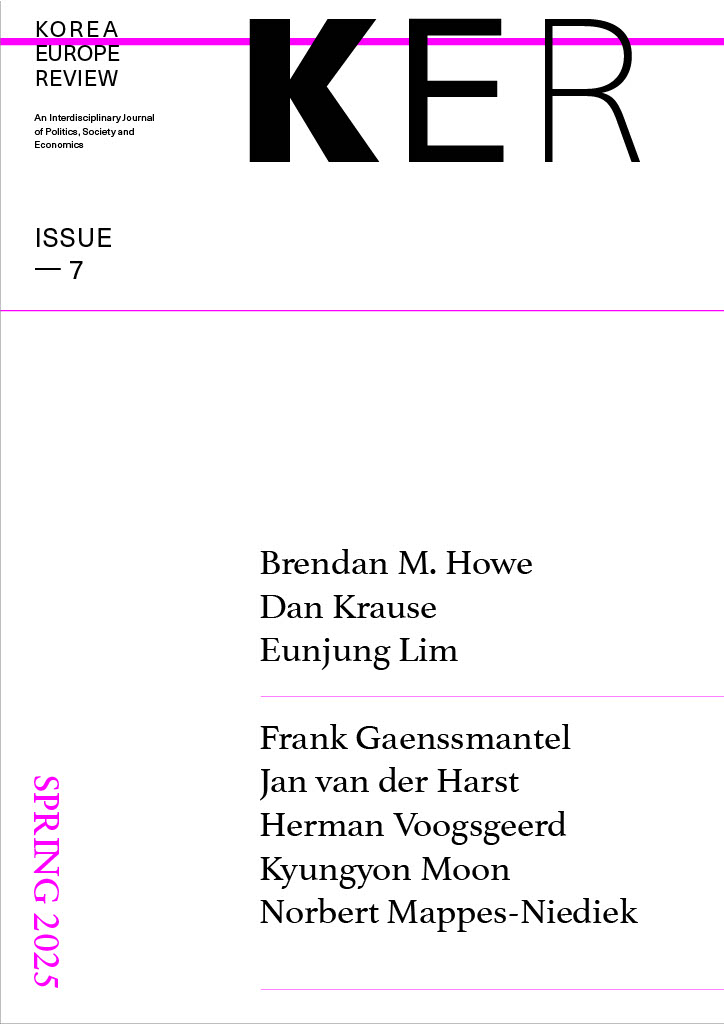The Emergence of Multipolarity and the Future of Alliances
Thinking about Sustainability of the Korea-US-Japan Strategic Triangle
DOI:
https://doi.org/10.48770/ker.2025.no7.52Keywords:
Multipolarity, alliances, South Korea-U.S.-Japan, geopolitical tensions, North Korean nuclear threatAbstract
This article examines the evolving dynamics of the South Korea-U.S.-Japan relations against the backdrop of an increasingly volatile global order. It reflects on two major ongoing wars—Russia’s invasion of Ukraine and the conflict between Israel and Hamas—and discusses how these events compel nations to reassess their geopolitical strategies. It explores the trilateral cooperation among South Korea, the United States, and Japan, emphasizing shared concerns such as North Korea’s nuclear ambitions, cybersecurity threats, and the competition with China in technological innovation. The study acknowledges the advantages of this cooperation—particularly in the areas of security, technology, and energy—but also points out challenges that could threaten its sustainability.
These challenges include balancing relations with China, managing domestic political dynamics, and navigating nationalistic tendencies. The article concludes that while the South Korea-U.S.-Japan security cooperation is essential in a multipolar world, its future depends on internal political stability and the ability of leaders to maintain public support for sustained collaboration.
References

Downloads
Published
Issue
Section
License
Copyright (c) 2025 Eunjung Lim

This work is licensed under a Creative Commons Attribution 4.0 International License.


